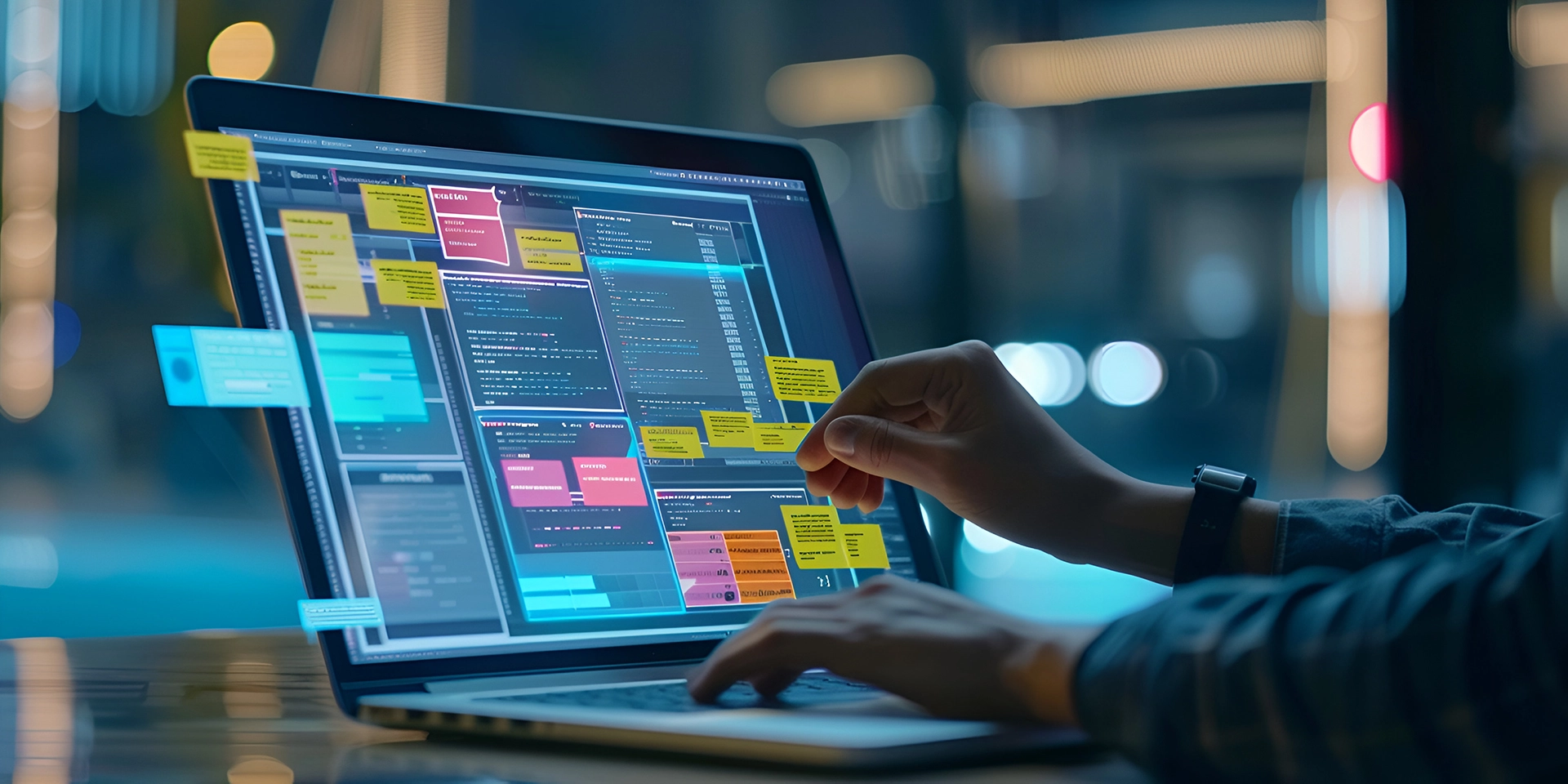Table of contents
- Telework and workplace safety
- Telework and IT data security
- Protecting sensitive data in telework
In recent years, teleworking has become an increasingly common way to perform work activities. This change, accelerated by the COVID-19 pandemic, has brought numerous undeniable benefits. However, it has also highlighted the need to implement adequate security measures to protect employees working remotely.
Telework and workplace safety
From a safety perspective, teleworking requires consideration of various aspects, ranging from workplace safety to data security. Employees working from home may face different risks compared to those in a traditional workplace. Therefore, it is essential to adopt specific prevention measures to minimize these risks.
Telework and IT data security
One of the main issues is IT security in teleworking. With the increase in the number of people working remotely, the threat of cyberattacks has also grown. Companies must ensure that their employees have the right technological tools and the necessary knowledge to protect corporate data. This includes using secure company devices, cyber security training, and implementing adequate protection systems.
Example:
Using VPNs (Virtual Private Networks) can help protect communications and data transmitted between employees and the company.
Adopting security measures in teleworking should be a priority for every company. These measures include:
- Data encryption
Encrypting data to protect information from unauthorized access during transmission and storage.
- Antivirus and firewall software
Ensuring that all devices are equipped with up-to-date antivirus and firewall software to detect and block potential cyber threats.
- Continuous employee training
Regularly training employees on cyber security risks and best practices.
Additionally, it is important for companies to establish clear policies for the use of personal and corporate devices. Personal devices can be a weak point if not adequately protected. Companies must ensure that employees use company devices or, if this is not possible, that personal devices are securely configured and protected with appropriate security software.
From a physical and health safety perspective, employers must ensure that teleworkers have a safe working environment at home. This includes assessing ergonomic risks and providing adequate equipment such as ergonomic chairs and adjustable desks to prevent long-term health problems. The health protection of employees working remotely is just as important as that of employees working in the office.

Protecting sensitive data in telework
Another crucial aspect of telework security is protecting sensitive data. In a telework context, corporate data is often managed outside of secure corporate networks, increasing the risk of breaches and information theft. Protecting sensitive data is not just a matter of legal compliance but is fundamental to maintaining customer trust and preserving the company’s reputation.
- Rigorous security policies
Data protection begins with implementing rigorous security policies. These policies must clearly define what data is considered sensitive and what measures must be taken to protect it.
Example:
Personal customer data, financial information, and business strategies must be handled with the utmost care. Companies must ensure that only authorized employees have access to this data and that access is limited to the data necessary for their tasks.
- Data encryption
An important security measure is data encryption. Encryption protects information by transforming it into an unreadable format for anyone without the decryption key. This technique should be used for both data in transit (during transmission between devices and networks) and data at rest (stored on employees’ devices). Using a VPN for network connections can further protect data in transit by creating a secure tunnel for information to travel through. - Device security
Companies must also ensure that the devices used to access sensitive data are secure. This includes both company-provided devices and personal devices used by employees. Company devices should be equipped with updated security software, including antivirus, firewall, and intrusion detection tools. For personal devices, companies should provide guidelines on how to keep them secure, such as installing security software and regularly updating the operating system and applications. - Password management
This is another critical aspect of protecting sensitive data. Weak or easily guessable passwords are one of the main vulnerabilities in cyber security. Companies should promote the use of complex and unique passwords for each account and encourage the use of password managers to securely store and manage credentials. Additionally, implementing two-factor authentication (2FA) can add an extra layer of security by requiring employees to provide a second form of verification, such as a code sent to their phone, in addition to the password to access company systems. - Employee training
This plays a fundamental role in protecting sensitive data. Employees must be aware of best practices for data security and the risks associated with negligent or imprudent behavior. Training should cover topics such as recognizing phishing emails, the importance of password security, the proper use of VPNs, and the secure management of devices. Companies should also provide regular security updates to keep employees informed about new threats and the latest protection techniques.
Finally, companies must be prepared to respond quickly and effectively in the event of a data breach. This includes having a well-defined incident response plan that outlines the steps to take in case of a breach, such as notifying the relevant authorities, communicating with customers, and measures to contain and mitigate the damage. A proactive approach to incident management can help reduce the impact of breaches and quickly restore data security.
FAQ
- What are the main IT security measures to adopt in teleworking?
The main IT security measures include:
- Using VPNs,
- Up-to-date antivirus and firewall software,
- Data encryption,
- Continuous cyber security training
- And clear policies for the use of personal and corporate devices.
- How can companies protect sensitive data in telework?
Companies can protect sensitive data by implementing strict data management and protection policies. This involves using secure work tools and limiting access to sensitive data to authorized employees only. - What are the ergonomic risks of teleworking and how can they be mitigated?
The ergonomic risks of teleworking include musculoskeletal problems caused by poor posture. These can be mitigated by providing adequate equipment such as ergonomic chairs and adjustable desks, promoting regular breaks, and encouraging good posture. - How can companies monitor the effectiveness of security measures in teleworking?
Companies can monitor the effectiveness of security measures through:
- Periodic audits,
- Continuous threat monitoring,
- Security log analysis
- And regular updates to security policies based on new threats.
- What are the benefits of using corporate devices in teleworking?
Using corporate devices in teleworking offers benefits such as greater security, centralized control of security configurations, automatic software updates, and protection against malware and cyberattacks.
- How can cyber security training improve telework security?
Cyber security training can improve telework security by:
- Increasing employee awareness of cyber risks,
- Teaching them to recognize and respond to cyber attacks
- And promoting safe practices in the use of technological tools and devices.
- What are the best practices for ensuring a safe work environment at home?
The best practices include:
- Assessing ergonomic risks,
- Providing adequate equipment,
- Implementing IT security measures,
- Continuous employee training
- And creating clear policies for the use of personal and corporate devices.

